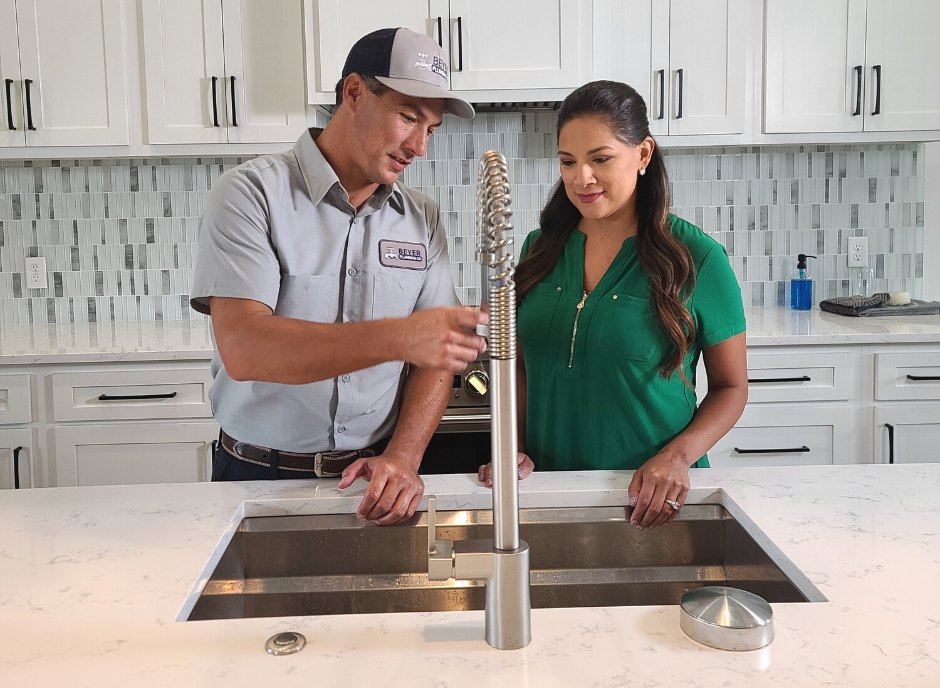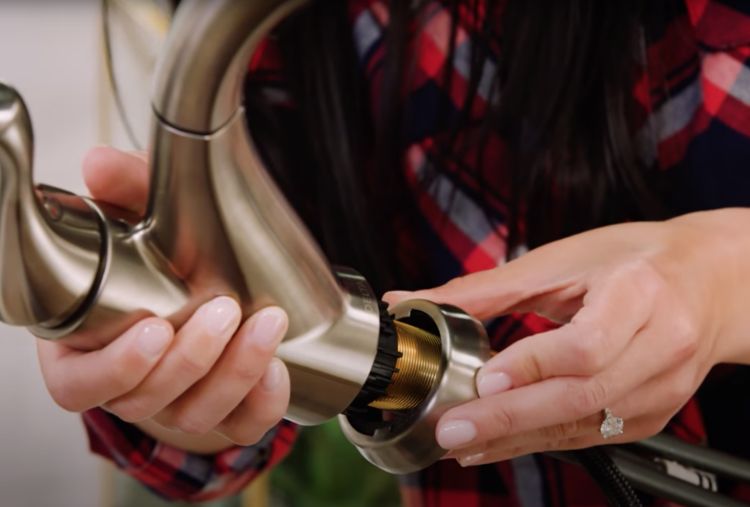Every person seems to have their own individual idea when it comes to How to Fix a Dripping or Leaky Faucet .

Trickling faucets might look like a minor trouble, however their effect exceeds simply the nuisance of the sound. From wasting water to sustaining unnecessary economic expenses and health dangers, disregarding a leaking faucet can bring about numerous effects. In this post, we'll explore why it's essential to resolve this common house concern without delay and efficiently.
Wastefulness of Water
Environmental Influence
Dripping taps contribute significantly to water wastefulness. According to the Epa (EPA), a single faucet trickling at one drip per secondly can waste more than 3,000 gallons of water each year. This not only strains water resources however additionally influences environments and wild animals depending on them.
Financial Prices
Enhanced Water Expenses
Beyond the ecological effect, leaking taps can blow up water costs substantially. The accumulated wastage over time equates into higher energy expenditures, which might have been prevented with prompt repair services.
Prospective Residential Property Damage
Furthermore, long term dripping can bring about damage to components and surface areas surrounding the tap. Water buildup can cause discoloration, rust, and also structural problems if left unattended, leading to added repair service expenses.
Wellness Issues
Mold And Mildew and Mold Growth
The consistent presence of dampness from a dripping faucet develops an ideal atmosphere for mold and mold development. These fungis not just compromise indoor air top quality but likewise present health and wellness threats, specifically for people with respiratory system problems or allergies.
Waterborne Illness
Stagnant water in leaking faucets can end up being a breeding place for germs and various other virus, raising the threat of waterborne illness. Pollutants such as Legionella bacteria flourish in stagnant water, possibly leading to significant ailments when ingested or inhaled.
DIY vs. Professional Fixing
Pros and Cons of Do It Yourself Repair Work
While some may try to take care of a dripping faucet themselves, do it yourself repairs come with their very own set of obstacles. Without proper expertise and tools, DIY efforts can exacerbate the problem or bring about incomplete repair services, prolonging the trouble.
Benefits of Employing a Specialist Plumber
Working with a professional plumber guarantees that the underlying reason for the leaking tap is attended to properly. Plumbings possess the proficiency and tools to diagnose and repair faucet concerns efficiently, conserving time and reducing the danger of more damages.
Step-by-Step Overview to Taking Care Of a Dripping Tap
Devices Needed
Before trying to fix a dripping tap, gather the necessary devices, including a flexible wrench, screwdrivers, replacement components (such as washers or cartridges), and plumber's tape.
Common Tap Issues and Their Solutions
Identify the sort of tap and the particular concern triggering the drip. Usual problems consist of worn-out washers, rusty shutoff seats, or faulty O-rings. Refer to producer instructions or on the internet tutorials for detailed guidance on repairs.
Preventive Measures
Routine Maintenance Tips
To avoid trickling faucets, perform routine maintenance such as cleaning up aerators, evaluating for leaks, and changing damaged parts promptly. In addition, consider installing water-saving devices or upgrading to more efficient fixtures.
Importance of Prompt Fixes
Attending to leaking faucets as soon as they're seen protects against more water waste and potential damages, ultimately conserving both water and cash in the long run.
Influence On Home Value
Understanding of Well-Maintained Property
Preserving a residential property in good condition, including attending to maintenance problems like trickling taps, enhances its viewed worth and worth among prospective customers or renters.
Impact on Resale Worth
Features with well-kept plumbing components, consisting of taps, command greater resale values in the real estate market. Attending to dripping faucets can contribute to a favorable impression during home assessments and settlements.
Environmental Obligation
Specific Payment to Preservation
Taking responsibility for taking care of trickling faucets lines up with broader initiatives towards water preservation and ecological sustainability. Every person's actions collectively make a significant effect on maintaining precious sources.
Lasting Living Practices
By focusing on prompt repairs and adopting water-saving practices, individuals add to lasting living methods that benefit both existing and future generations.
Final thought
Addressing a trickling faucet surpasses plain comfort; it's a vital step towards conserving water, minimizing financial expenses, and securing health and residential property. Whether through do it yourself repairs or expert aid, taking action to take care of trickling faucets is a little yet impactful means to advertise liable stewardship of resources and contribute to a much healthier, much more sustainable future.
How to Fix a Leaky Faucet: Step-by-Step Repair Guide
A leaky faucet may seem like a simple annoyance, but if it's not fixed promptly, that leak could cost hundreds to potentially thousands. From water damage to mold, mildew, and high water bills, even a tiny leak can be catastrophic if left unattended. Damage like this can even affect the overall value of your home, so it's important to take the right approach for leaky faucet repair. You may need the help of a plumber in some cases, but we've got a few tips you can try on how to fix a leaky faucet before calling the pros.
Four Faucet Types
When you're learning how to fix a leaky faucet, the first step is knowing what kind of faucet you're working with! There are four common types.
Cartridge Faucets
Cartridge faucets come in one- or two-handled varieties. In one-handled cartridge faucets, hot and cold water combines in a single cartridge. In the two-handled versions, hot and cold water are controlled separately and mixed in the faucet.
Ball Faucets
Ball faucets have a single lever you push up and down to adjust the pressure and rotate to change the temperature. A slotted metal ball controls the amount of water allowed into the spout.
Compression Washer Faucets
They're the oldest type of faucet, but they're still used in many homes — especially older ones. Compression faucets have two separate handles that, when turned, raise or lower the washer that seals a water valve. This valve stops water from flowing through the faucet when it is turned off.
Disc Faucets
Disc faucets rarely need to be repaired due to their maintenance-free design. The water flow is controlled by two discs — the upper one raises and lowers against a fixed lower disc, creating a watertight seal. If your disc faucet starts leaking, you may need to replace the seals or clean residue buildup from the inlets.
Fixing a Leaky Faucet
Step 1: Turn Off the Water
Whether you're learning how to fix a leaky bathtub faucet or how to fix a leaky kitchen faucet, always turn off the water supply to your working area when you're fixing a leak. The last thing you want is a flood added to your list of things to fix.
Look for the shutoff valves below your sink or around the tub and turn them clockwise to stop the water flow. If your faucet doesn't have shutoff valves, you may need to turn off the water for the whole house. Check to make sure it's off by turning the faucet on. If nothing comes out, you're ready to start the repair.
Step 2: Take Apart the Faucet
How you disassemble your faucet depends on the type of fixture you have. You can use a flathead screwdriver to remove the caps on top of the handle or handles for cartridge and compression faucets. Inside, you should see handle screws. Unscrew these with a screwdriver to remove the handle.
Disc- and ball-style faucets will typically have an inlet screw near the handle, and removing that will reveal the interior of the faucet.
Detach the Valve Stem
For cartridge- and compression-style faucets, you'll see the inner valve stem or cartridge once you remove the faucet handles. If you have a compression faucet, unscrew the brass valve stem. If you have a cartridge faucet, pull out the cartridge. If your cartridge has been in place for a while, it may require some tools or extra force to remove it due to mineral deposits.
Examine and Replace Parts
Once you've removed the parts, check them out to confirm what needs to be replaced. You may see corroded rubber washers, O-rings, stems, or cartridges. On a ball-style faucet, check the seats and springs for damage.
If you need to repair a leaky disc faucet, check the inlet and seals on the lower disc.
Once you determine what parts must be replaced, visit your local hardware store. Bring the damaged parts with you to ensure you can purchase the correct components to replace them.
Clean Valves and Faucet Cavity
If you've removed a stem or cartridge, you may notice mineral buildup in the faucet's threads. Use white vinegar to clean the valve seat by soaking it for a few minutes, then scrub it away with a soft toothbrush and rinse with warm water. You can also clean the interior of the faucet in the same way.
Reassemble the Faucet
Once your faucet is cleaned and the required parts have been replaced, it's time to reassemble it. Put the pieces back together and slowly turn the water supply back on. Doing this slowly is crucial because too much initial water pressure can damage the new hardware you've just installed.
https://homewarranty.firstam.com/blog/how-to-fix-leaky-faucet

Hopefully you enjoyed our topic on Why Are My Faucets Dripping (And Can I Fix It Myself)?. Thanks so much for taking the time to read through our blog post. Kindly pause to distribute this blog entry if you enjoyed it. Kudos for your time. Kindly visit our site back soon.